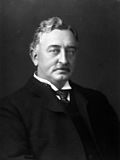| | |||||||||||||||||||||||||
| |||||||||||||||||||||||||
All 79 seats in the House of Assembly 40 seats needed for a Majority All 23 Seats in the Legislative Council 12 seats needed for a majority | |||||||||||||||||||||||||
|---|---|---|---|---|---|---|---|---|---|---|---|---|---|---|---|---|---|---|---|---|---|---|---|---|---|
| |||||||||||||||||||||||||
 Green - Progressive Party Blue - Ind/Afrikaner Bond alliance | |||||||||||||||||||||||||
| |||||||||||||||||||||||||
Elections to the Parliament of the Colony of the Cape of Good Hope were held in 1898. The Legislative Council was elected on 16 March and the House of Assembly between 9 August and 5 September. These were the first elections contested on a more-or-less two-party basis after the emergence of responsible government in 1872. Party divisions were still hazy at the time of the elections, but the result was a narrow victory for opponents of the Progressive Party of Cecil Rhodes, despite the Progressives winning the popular vote. Incumbent Prime Minister Gordon Sprigg had become aligned with the nascent Progressive party, and was succeeded by William Philip Schreiner, an Independent supported by the Afrikaner Bond, upon the inauguration of the new House of Assembly. [1] [2]

